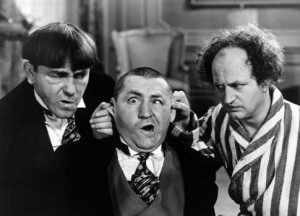 Most people dream of writing a book: 82% of Americans according to one highly quoted, but unavailable, study.
Most people dream of writing a book: 82% of Americans according to one highly quoted, but unavailable, study.
At least 6 docs in the last few weeks have asked me about starting a blog.
A quick check of the MD blogroll in Ontario includes: Drs. Barron, Beck, Elia, Ellis, Freedhoff, Fullerton, Larsen, Lougheed, Profetto, Singal, Tepper and Dhalla, Waghmare, Wooder (tell me if I missed you!). Additions: Dr. Menon.
This doesn’t include all the docs who post regularly on the Canadian Healthcare Network (gated).
But it’s not enough. Doctors need to write more.
Why Doctors Should Write
Doctors should shape the public’s understanding of medical care, not non-physician experts. If doctors do not write, others will.
Non-physician experts have interesting ideas about how MDs should work. Physician silence leaves these ideas unchallenged, untested by those the ideas impact.
Doctors should write books, articles, op eds, short stories, letters to the editor, memoirs, history, and more. Academic writing helps, but not enough. Academia freezes around a paradigm and forces writers into an igloo of peer review, editorial independence, and journalistic themes.
Victors write history. Doctors used to rule supreme in medicine. That changed and, in a number of ways, patients are better for it.
But pendulums can have very long arcs. The pendulum continues to accelerate away from physicians defining medical care. It might not change direction for a generation. Maybe it’s a trajectory, not a pendulum?
Planners view doctors as just one actor in a cast of providers. Medicine does not stand alone. Primary care includes everyone from pharmacists and nurses, to social workers and dieticians. Doctors need to stand in line to speak about patient care.
Still Unique?
And yet, patients still want to see their doctor. Someone needs to serve as most responsible ‘provider’. Everyone wants to give orders, but no one wants to take the blame.
Confidentiality shrouds medical care. Even when a team works on a patient, it happens behind the curtain; those outside see only blurry images around a stretcher. Policy experts attempt to put flesh on the shadows, but they never get behind the curtain.
Doctors should write in an attempt to reveal the heart of medicine. Writing shows how medicine looks compared with experts’ visions of a perfect system.
How to Write?
It has never been so easy to create content. Even if you hate typing, voice recognition transforms an hour of rambling into a short chapter. You can dictate, copy, cut, paste, and rewrite a short chapter in less time than it used to take to hand-write a 2 page letter.
Unfortunately, content creation is not writing.
“Re-writing is where the game is won or lost; the essence of writing is rewriting.”
– William Zinsser On Writing Well, 30th Anniversary Edition: An Informal Guide to Writing Nonfiction
– All writers need to read this short book, at least twice.
Writing is hard. It forces us to think harder than we want to. It feels like a tough clinical problem, which shouldn’t surprise us: writing and thinking fill medical practice.
Where to Start?
Start with what you know. Pain, frustration, and loss make powerful prose. Steal themes from great novels and make your writing fit the pattern. Write every day. Treat it like a serious job. Do not quit when times are good.
Patients notice doctors in the news, when negotiations fall apart, but rarely otherwise. This must change. We need strong communication from doctors, even more in between contract talks.
While 82% of people want to write a book, only 15% do it. Doctors should write to help people understand what clinical care means, to offer insight on how solutions fit with the heart of medicine, and to shape the future of care around patients’ needs, not political designs.


